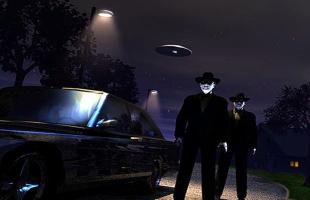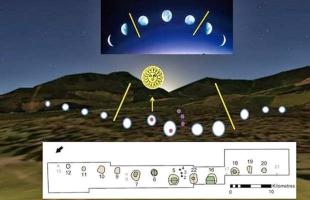Copy Link
Add to Bookmark
Report
OtherRealms Issue 13 Part 02

Electronic OtherRealms #13
March, 1987
Part 2
Books Received
Avon Fantasy
Abbey, Lynn. Unicorn & Dragon, 230 pages, February, 1987, $5.95
trade paperback.
Feisner, Esther M. The Witchwood Cradle, 241 pages, March, 1987, $3.50.
Avon Science Fiction
Moorcock, Michael. The Cornelius Chronicles Vol III., 341 pages,
February, 1987, $3.50.
Moorcock, Michael. Breakfast in the Ruins, 172 pages, 1971, $3.50.
Slonczewski, Joan. A Door Into Ocean, 406 pages, February, 1987,
$3.95. A second novel.
Williams, Michael Lindsay. FTL: Further Than Life, 327 pages, March,
1987, $3.50.
Bantam Books
Bradbury, Ray. Death is a Lonely Business, February, 1987, 216 pages,
$3.95. A murder mystery from one of the greats of the genre.
Geary, Patricia. Living in Ether, 214 pages, March, 1987, $3.50. A
First Novel.
Bantam Fantasy
Feist, Raymond. A Darkness at Sethanon, February, 1987, 430 pages,
$3.95. Concludes the Riftwar Saga. Reviewed in OtherRealms
#8 [***+]
Bantam Science Fiction
Benford, Gregory and Brin, David. Heart of the Comet, 477 pages,
March, 1987, $4.50.
Brin, David. The River of Time, 295 pages, February, 1987, $3.50.
Harrison, Harry. To the Stars, 472 pages, March, 1987, $4.95. Combined
edition of the novels Homeworld, Wheelworld, and Starworld.
Starblaze Graphics
Abbey, Lynn. Thieves' World Graphic #4, 64 pages 8 1/2" x 11" b&w
trade paperback, January, 1987. Fourth graphic adaptation of
the Thieves' World environment. Art by Tim Sale.
Asprin, Robert and Foglio, Phil. Myth Adventures Two, 110 pages,
$12.95, 8 1/2 x 11" 4 color trade paperback. Issues five
through eight of the Warp B&W Myth Adventures compiled and
colored by Phil Foglio.
St. Martin's Press
Longyear, Barry B. Sea of Glass, 375 pages, February, 1987, $18.95.
Tor Adventure
Marsh, Geoffrey. The King of Satan's Eyes, 281 pages, $3.50,
February, 1987.
Tor Fantasy
Bailey, Robin W. Frost, 208 pages, 1983, $2.95. Volume 1 of the
Saga of Frost. First Tor printing.
Fenn, Lionel. Web of Defeat, 284 pages, February, 1987, $2.95.
Sequel to Blood River Down, second volume in the Search for the
White Duck series.
Tepper, Sheri S. Northshore, 248 pages, shipping March 23, 1987,
$14.95 hardcover. First volume of The Awakeners series.
Wagner, Karl, editor. Echoes of Valor, 286 pages, February, 1987,
$2.95. Includes stories by Howard, Leiber, and Kuttner.
Tor Fiction
Maxin, John R. Time out of Mind, 511 pages, February, 1987, $4.50.
Tor Horror
Grant, Charles L. The Hour of the Oxrun Dead. 284 pages, February,
1987, $3.50.
Jeter, K. W. Dark Seeker. 317 pages, February, 1987, $3.95.
Laymon, Richard. Tread Softly, 311 pages, February, 1987, $3.95.
Tor Science Fiction
Card, Orson Scott. Speaker for the Dead, 415 pages, February, 1987,
$3.95. Odds-on favorite for 1986 Hugo and Nebula, now in paperback.
Carver, Jeffrey. The Rapture Effect, February 27, 1987, 371 pages,
$18.95 hardcover.
Tor Suspense
Hoyt, Richard. The Manna Enzyme, 308 pages, February, 1987, $3.95.
Peters, Elizabeth. Die for Love, 274 pages, February, 1987, $3.50
Pico Reviews
The Amsirs and the Iron Thorn by A.J. Budrys []
An unfortunate piece of hackwork trash that should never have been
printed, a shame from the author of such a masterpiece as The Falling
Torch. We all have our off days. The dreary tale of a young man in a
genetic experiment on Mars in the far future, filled with what must
have seemed cool, Salingeresque wisecracking at the time but which
today just reads like a third-rate detective novel. Bad dialogue, bad
characterization, bad plot, bad atmosphere, bad description, and bad
narration.
--Davis Tucker
ihnp4!druri!dht
Beyond Apollo by Barry Malzberg [****]
Re-reading a book usually, for me, is a disappointing experience. Not
in this case, however, depth sometimes requires more introspection.
This is one of Malzberg's best works, and is a definite must read for
anyone who wants to understand the best of the New Wave. A mad
spaceman is the lone survivor of a failed two man expedition to Venus.
We are put inside his mind as he lies, disassociates, fantasizes, and
chews the fat with himself. A fantastic exploration of altered mental
states and their effect upon the outside world. Well written,
experimental even now, and very expressive. Malzberg is one of those
writers who has a definite, singular style, his and no one else's.
--Davis Tucker
ihnp4!druri!dht
Bio of a Space Tyrant V: Statesman by Piers Anthony [**]
The latest and final entry in Piers Anthony's Bio of a Space Tyrant
series continues the story of Hope Hubris, the Tyrant of Jupiter. It
follows his final days as he pursues his dream of launching man into
interstellar space. In this book, Anthony's analogies to political
situations on current day Earth are not only obvious, the author
bludgeons us over the head with them. While the story flows smoothly
enough, the solutions to purportedly complex issues are pat and
unsatisfying. Readers who have followed this series from its inception
will enjoy this entry as well, even though it is weaker than the other
books. Anthony has done a competent if uninspired job of concluding a
strong series. Some readers may be annoyed that provisions for further
stories are made at the end, but this appears to be standard practice
in todays publishing world. Only to be read by readers of the first 4
books in the series.
--Peter Rubinstein
Boating for Beginners by Jeanette Winterson [*****]
Methuen, 3.50 pounds, 1985.
This is supposedly the true story of Noah's flood. Like the
Hitchhiker's Guide to the Galaxy, it may be inaccurate, but anything
this good has got to be definitively inaccurate. Winterson presents
Bunny Mix (the greatest romantic novelist of all time), an orange
elemental (who constantly annoys Doris the cleaner), Gloria Munde (who
leaves her slightly eccentric mother to work in Noah's household), as
well as the more well-known characters from the biblical version of the
story. She reveals how the creator was created, how Noah started his
religious cult and why he was upset by the sight of Black Forest
Gateau, how the first hamburger chain began, the state of pre-flood
psychoanalytic techniques, and why Noah chose to write his story
instead of this version. Hilarious.
--Dave Berry
db@itspna.ed.ac.uk
Book Reviewing edited by Sylvia E. Kamerman. [***]
215p. 1978. $12.00. The Writer, Inc.
Comprising 21 chapters by nationally known editors and reviewers, this
book explains, clearly and concisely, how to write various kinds of
book reviews. It also tells how to get advance information about
forthcoming books and how to request review copies from publishers.
Equally important, it gives advice on how to get reviews accepted and
published in a local or regional publication. Its eclectic
presentation of theory and practice provides a valuable introduction to
the reviewer's craft.
--Jim Day
JimDay.Pasa@Xerox.COM
Boxen: The Imaginary World of the Young C.S. Lewis
Edited by Walter Hooper [***-]
A Harvest/HBJ Book (Harcourt Brace Jovanovich)
$4.95 ISBN 0-15-614000-4
Long before Narnia, there was Boxen. When he was a child, Lewis and
his older brother played in imaginary countries: CSL's was Animal-Land,
and has brother's was India. Hooper has selected the best of the texts
from young CSL's notebooks and presented us an idea of what Narnia
might have been like if Lewis had never returned to Christianity.
Lewis wrote this material from age (roughly) eight to twelve, but it
reads less like the work of a schoolchild than of an incredibly naive
and just slightly dyslexic old man.
--Dan'l Danehy Oakes
ptsfa!pbhyc!djo
Broken Symmetries by Paul Pruess [***+]
Pocket Books, $3.95, 1983, 370 pages
In the near future, a trillion-volt accelerator in Hawaii is producing
mysterious particles called I-particles, which are constructed from the
newly discovered inside quark (i-quark). Peter Slater is a snobbish
theoretician who becomes entangled in the web of espionage surrounding
this powerful new substance. There's also some interesting diversions
into Japanese culture. Good hardcore SF, plot ok, characterization
kind of weak. I enjoyed it.
--Brian Yost
bellcore!motown!bty!yost
Circuit by Melinda Snodgrass [****+]
Berkeley Books, $2.95, 1986, 232 pages
In an effort to regain control of Earth's rebellious space colonies,
the President of the United States appoints his friend Cabot Huntington
as the chief justice of the newly created Fifteenth Circuit Court. Cab
goes to space as the President's puppet, but after the USSR nukes a
rebel Soviet moon colony--with the President's cooperation--Cab must
either join the rebels' fight for freedom, or throw away what's left of
his own self respect. An excellent novel, I highly recommend it.
--Brian Yost
motown!bty!yost
Companions on the Road by Tanith Lee [***+]
Bantam 12397-0 1.95
Probably out of print, but I found this little gem on a used bookstore
shelf. It is actually two stories, the title story and "The Winter
Players." Both stories show Lee at her best, with all the power she has
for telling, good, solid stories that captivate all the old,
archetypical fears and loves of folk tales and fairy tales. The first
is about three men in the sacking of the newly defeated city of a demon
king. They steal a chalice from the grounds, and the curse upon the
thing catches up with them. The second is almost impossible to
summarize, but involves a priestess, magic of will, werewolves, an evil
spirit and time travel; and it is a tribute to her powers of
storytelling that this story not only works but is unforgettable.
--Liralen Li
li@vlsi.cs.washington.edu
Crash by J. G. Ballard [*****]
Probably the most disturbing novel ever written by this admittedly
disturbing author. It deals with autoeroticism in its literal
sense--modern man's love affair with the automobile, his flirtations
with imminent death, his rendezvous with traffic interchanges. The
primary theme is that of car crash as sexual act, and we follow his
insane but lucid protagonist on a harrowing journey through abandoned
car parks, junkyards, deliberate accidents, ambulance chases, and
sexual fascination with Elizabeth Taylor. This is one of the most
important works of the 1960's, perhaps of the modern era, and deserves
to be ranked with Burroughs' Naked Lunch and Burgess' A Clockwork
Orange for its sheer power and visceral punch, combined with feverish
intellectual fascination. The images of semen and crunched dashboard,
orgasm and illegal right turn, dismemberment and love, lust and a
steering wheel column through the chest, all of them combine into a
masterful exploration of insanity and sex. Pornographic in the real
sense, obscene in its truthfulness, desperate in its unfolding. Not
for everyone.
--Davis Tucker
Cybernetic Samurai by Victor Milan [***+]
Ace Science Fiction 0-441-13234-0 3.50
It was the afternoon after my last final, my brain was fried and I
wanted some easy reading, something fun and irreverent and somewhat
silly, so I picked up this book from the title and the back cover. I
was in for an amazing surprise. For the first few chapters I was
really impressed with the wealth and detail of scientific backing that
Milan put into this book. It contains the first explanation for
artificial intelligence that I've ever been able to suspend disbelief
for. Then, as I read further and further into it, I became more
impressed with the development of Tokugawa, the created artificial
intelligence; however, the development of the flesh and blood
characters lacked quite a bit. Finally, at the end, it hit me that I'd
been reading a classical tragedy. Very heavy stuff, and the truly
amazing thing was that Milan had done such a thorough job of it that I
hadn't even minded reading it while set for something completely
different. I recommend it highly for someone who is in the mood for a
true tragedy that is set in a hard SF period.
--Liralen Li
li@vlsi.cs.washington.edu
Daughter of Regals & Other Tales by Stephen R. Donaldson [***+]
Del Rey, 1984, 337 pp, $14.95
Daughter of Regals is a collection unrelated short stories. The
stories cover both fantasy and SF, but the entire work is more
fantasy. There is also a social fiction/horror story (Bradbury-ish
style). All of the stories are simple and fun to read, though I don't
expect any of them to stick in my mind like a great story does. The
only disappointment is Gilden-Fire, which is a chapter that was removed
from the first Thomas Covenant series because of size. By itself
Gilden-Fire had no appeal to me, but it might be much more enjoyable if
read as a chapter in its proper place in the Thomas Covenant series.
--Jim Winner
winner@cua.bitnet
The Dispossessed by Ursula K. LeGuin [*****]
This is probably my all-time favorite. It tells the story of Shevek,
an emissary from the anarchistic world of Annares, and his adventure to
Urras, the propertarian parent world of Annares. Alternating between
his present life on Urras and his upbringing on Annares, Le Guin
contrasts the two drastically different cultures, uncovering the good
and bad qualities of each. In the process, of course, one gets a new
perspective on our own society. This book is bound to hit you where
you live. 1974 Nebula and Hugo Winner.
--Brian Yost
bellcore!motown!bty!yost
Dr. Who: Search for the Doctor by David Martin []
Ballantine Books Find Your Fate series, $2.50
Written in second person, this is a book-adventure. You read the
story, make a decision and the story continues based upon your
(limited) decisions. Aimed at the 8--12 year old audience, and not
very well done.
--chuq von rospach
Enterprise: the First Adventure by Vonda McIntyre [***]
Pocket Books, $3.95, 1986, 371 pages
I generally steer clear of Star Trek novels, but this one looked
interesting. And even though the plot was ludicrous--the Enterprise
has to transport a vaudeville show to various starbases--I liked the
book. They meet up with some interesting aliens and, of course, some
Klingons. Kirk starts off on the wrong foot with everybody, and has to
win their loyalty by the end of the story. McIntyre does an admirable
job of staying within the strict guidelines of the Star Trek universe.
--Brian Yost
bellcore!motown!bty!yost
Gilpin's Space by Reginald Bretnor [***]
Ace, 1986 218pp
An eccentric scientist discovers a faster-than-light drive that can be
manufactured cheaply--and just in time, too. Authoritarian governments are
gaining power all over the world, and this will be the last chance for freedom
lovers to escape their clutches. The story is told first person in 3 parts, and
the middle third lags since the character telling the story doesn't seem very
involved. The extra star is for those readers who enjoy books about space as
the next open frontier for freedom seekers.
--Chris Hibbert
Hibbert.pa@Xerox.COM
The Imperial Stars edited by Jerry Pournelle []
I'm not going to pick on Pournelle's politics, or his bludgeoning
attempt to cram disparate stories into some great Neolithic framework
proving his point that yes, might does make right (or whatever point
he's trying to prove--I confess that sometimes his logic confuses the
hell out of me). No, the problem with this anthology is that he chose
terrible stories, with a few exceptions, to prove his thesis that the
natural state of man and his government is empire. Bad stories by
mediocre authors, bad stories by great authors, with only a few
occasional romping, rollicking good reads among them. The ground that
he covers has been done far, far better by Brian Aldiss in his
anthology of space opera, Galactic Empires; in fact, he includes one of
Aldiss' best choices - Poul Anderson's The Star Plunderers. It's all
been done before, and better, and certainly without as much rabid
right-wing political filler as this - too many times I found myself
saying, "let's get on with it, Jer." Too much deification of John W.
Campbell. Too much 40's-50's space opera for a book put together in
the 80's (it wasn't sold as a history of science fiction). Not radical
enough--Pournelle usually gets me really pissed off, but here it's
pretty ho-hum stuff. Too much repetition.
--Davis Tucker
Involution Ocean by Bruce Sterling [***]
Sterling's first novel, it deals with a strange world of a dust sea and
giant "whales" that are hunted for food by the inhabitants. As with
much of his later works, Sterling throws away more great story ideas
than many writers use over and over again; his imaginative potential is
giant. While suffering from many of the common problems of first
novels, especially a poorly-worked-out ending, the world of Nullaqua
and his drug-addicted protagonist are very well-drawn and compelling.
Especially good is his character of the captain of the whaling ship,
Captain Desperandum, a man who is 400 years old and not a little bit
insane. Any similarities to Moby Dick and 20,000 Leagues Under the Sea
are purely intentional.
--Davis Tucker
ihnp4!druri!dht
The Ladies of Mandrigyn by Barbara Hambly [****]
Del Rey Fantasy 345-30919-7 2.95
Here Captain Sun Wolf, the captain of a mercenary troop, is kidnapped
by the women of a captured city and told by them that he must train
them well enough to free their men and homes or else die by slow
poison. The grit, intelligence and sheer desperation that made it
possible to steal the captain from the midst of his men, are the
character traits of the women of the city. This book follows their
adventures as well as the adventures of the captain's second-in-command
as she tries to find her captain. Yup, she, and an amazing she at
that. Once again, Hambly draws characters more concerned with their
reality than the legends that have grown up about them. And she gives
a story that is as filled with the perils and absurdities of the
politics that crop up whenever a group of people must live together as
it is with physical dangers.
--Liralen Li
li@vlsi.cs.washington.edu
Law and the Writer Edited by Kirk Polking and Leonard S. Meranus [****]
Writer's Digest books, $10.95.
A technical discussion of the laws affecting writers, with an emphasis
on Copyright law. Includes the complete text of the 1978 Copyright law.
--chuq von rospach
Magician by Raymond E. Feist [***]
Granada, 2.95 pounds, 1983.
A long book, using stock fantasy characters, about a war between worlds. Feist
does it better than most, but I don't see why Chuq raves about it.
--Dave Berry
db@itspna.ed.ac.uk
The Meaning of Liff by Douglas Adams & John Lloyd []
Harmony books, $8.95 hardback.
This book will change your life says the cover copy. Not likely. An
attempt to cash in on the Hitchhiker's Guide to the Universe series,
this is little more than an attempt to make up silly sounding words
with sillier sounding definitions. Few of them are the least bit
funny, unfortunately.
--chuq von rospach
The Mirror of Her Dreams by Stephen R. Donaldson [****]
Del Rey, 1986. 642 pp. $19.95
Mordant is a land beset by enemy swords and renegade imagery. (Imagery
is the sorcerous art of calling up an image in a mirror and then making
it real.) Geraden is an apprentice imager sent into a mirror to bring
back the champion who can save Mordant. Instead he returns with Terisa
Morgan, whom he has interrupted in the midst of yet another evening
spent looking at her apartment walls. Some of the ideas developed in
the Covenant trilogies are expanded here. Covenant didn't believe in
the reality of his surroundings. He wouldn't have clapped if Tinker
Bell had been lying bleeding at his feet. Morgan's problem is more
common, though potentially as dangerous: she doesn't believe in her own
reality. She wouldn't clap because she wouldn't believe it would do
any good. Donaldson's writing is much better than in his Covenant
trilogies, cleaner and not cluttered with sesquipedalian words he
neglected to look up in the dictionary. But along with the
extravagance of language, he has abandoned extravagance of
imagination. The plot has no surprises. None. Although Morgan's
viewpoint is maintained throughout, we probably know or suspect much
more than she does by the end of the book--because we've read more
fantasy and science fiction than she has. The book is worth reading,
but it probably wouldn't hurt to wait for the paperback. It will be
concluded in the sequel, "A Man Rides Through."
--Dani Zweig
haste#@andrew.cmu.edu
Myth Adventures Two by Robert Asprin and Phil Foglio [***+]
Starblaze Graphics, $12.95 (8 1/2 x 11 four color trade paperback)
A colorized version of issues four through eight of the Warp B&W Myth
Adventures comic book. If you haven't seen the material before (it is
available in many different forms) a lot of fun.
--chuq von rospach
The Nagasaki Vector by L. Neil Smith [**+]
Del Rey, 1983, 242 pp, $2.75 (paper)
The Nagasaki Vector is a story about a Space Cowboy time traveler who
gets hijacked. The story then follows him as he escapes from the
hijackers and tries to get his time machine back. Unlike most time
travel novels, very little of this book deals with past historical
events, but further explanation would spoil part of the book for those
who don't catch on very early in the book. The book is full of puns
and one-liners as can be seen from titles of the chapters. The puns
are not as clever as Piers Anthony's Xanth books, but there also aren't
as many (thankfully). I eventually got tired of the space cowboy campy
humor of the book, but reading the first chapter (11 pages) should give
you a feel for what you in for in the rest of the book.
-Jim Winner
winner@cua.bitnet
The New World: An Epic Poem by Frederick Turner [****]
Princeton University Press, 1985. 182 pp. $9.95
The world of the 24th century is not portrayed as a background for the
story told by this poem. Rather, the poem is primarily about that new
world, and it is an optimistic one. The story itself is heavily
mythologized. There has been serious resource depletion, but not
holocaust. Several social and historical pendulums have swung
backwards, but the changes constitute progress in a different
direction, not retreat. Science, philosophy and art have not stood
still. The poem is not Utopian. The society to which we are most
attracted, that of the "Free Counties," visibly bears the seeds of its
own demise. The work is an epic poem because it has to be one. The
task it accomplishes could not have been done successfully in prose.
The work passes two other crucial test, as well. The poetic format
makes reading easier, rather than harder. And it is good poetry, in a
very old tradition.
--Dani Zweig
haste#@andrew.cmu.edu
Pilgerman by Russel Hoban [****]
A very strange work by the author of Riddley Walker. At times it reads
like a travelogue of Renaissance Europe and the Middle East, at other
times it is a classic medieval morality play, at other times a
rumination on what it means to be a Jew. Extremely well-written, if a
bit dense, but if you like Gene Wolfe you ought to like this, too -- a
very good example of the best of what science fiction can offer, though
it can't really be considered science fiction of any recognizable
sort. There are some fantastic narrative passages in this, some
beautiful dialogue and comments, and despite its extremely horrific
beginning this book turns out to be almost pastoral. One great passage
on how it is sex that is responsible for war is worth the price of the
book (because without sex there would be no cannon fodder, no generals,
no horses to pull the cannons...) Hoban has defied the repetition of
theme that so often occurs with writing of this style, and wanders into
some definitely heavy territory without being pedantic or obtuse. Yet
another one to watch.
--Davis Tucker
ihnp4!druri!dht
Quarreling, They Met the Dragon by Sharon Baker [****]
Avon Books, $2.95, 1984.
The story of a slave-prostitute boy who runs away with a barbarian
prince from the North, with the aim of reaching the safety of the
off-worlders' spaceport. Mostly about their journey, during which they
fall in love, with flashbacks of the slave's earlier life, and a strong
ending. The theme of the book is how people can relish in servitude,
but as a case study rather than a polemic for or against this
attitude. The endpiece suggests that the author did a considerable
amount of research for this topic. She handles sex & love well; the
book steers clear both of pornographic explicitness and of idealized
emotions, and it has some wonderful masochist images. (Not for people
offended by non-conventional sex).
--Dave Berry
db@itspna.ed.ac.uk
The Real Life of Alejandro Mayta by Mario Vargas Llosa [****]
Set in Lima, Peru in the near-future, this is about a writer writing a
novel about a real-life Trotskyist revolutionary of the 1950's, trying
to gather facts amid chaos and armed insurrection, amid invasion by
foreign countries and unpredictable cruelty by fellow Peruvians. It
sounds dull and pedantic and cloyingly self-referential, but Llosa is
one of the masters of South American fiction and the way he mixes
reality and myth, truth and fiction, is fascinating and vibrant. This
book is flesh-and-blood alive, with a great story of a bungled
revolutionary attempt in the past, fear of the future in the present,
and uncertainty of results in the future. It breathes righteous
indignation in the same moment as it exhales wise resignation. Llosa
is a marvellous writer and a sensitive observer of what is to come, and
of what has passed and how that affects us.
--Davis Tucker
ihnp4!druri!dht
Requiem for a Ruler of Worlds by Brian Daley [**+]
Del Rey paperback, 1985, 290 pages, $3.50
It's hard to write a humorous murder mystery, SF or no. Daley's effort
is commendable, but it lacks punch in both the mystery and humor
departments. A murdered ruler's will contains a mysterious inheritance
for an Earthman, Hobart Floyt. To get him safely to the world where he
will collect his inheritance, Earth government blackmails an
experienced spacer, Alacrity Fitzhugh. This unlikely duo passes
through a series of encounters on their way to collecting the
inheritance. The plotting is a little weak; it's obvious from the
start that Daley is trying to set up for an open-ended series of
adventures. Along the way, several interesting characters get
dropped. The main duo are likeable enough, but are not
well-developed. They do not have the life that, say, Fafhrd and the
Grey Mouser have. All in all, Requiem is a good light read, but is not
particularly memorable.
--Alan Wexelblat
wex@mcc.com
Seeds of War by Kevin Randle and Robert Cornett [***-]
Seeds of War describes the first interstellar conflict the Earth has
engaged in. The plot moves quickly, doing an acceptable job of
allowing the reader to overlook some of the more glaring gaps in the
story's logic. The authors use descriptions of a single scene from the
point of view of several of the protagonists effectively in order to
establish a feeling of realism. Overall, the book is moderately
entertaining, but bears a number of striking similarities to the far
superior Starship Troopers by Robert A. Heinlein. Still, it will make
good reading for the reader who like militarily oriented novels.
--Peter Rubinstein
The Silent Tower by Barbara Hambly [**]
Del Rey Fantasy 345-33764-6 3.95
An interesting premise, combining the wizardry of magic with the
wizardry of computers; however, this book fell flat for me. The
characters were not nearly as convincing as in Dragonsbane, they almost
all took themselves far too seriously, and the only one that seemed to
have any handle on reality was called insane by everyone, including
himself. Also, Joanna, the lady that was the first chosen of all the
programmers on this Earth, was having problems with one of the more
basic data structures designed for a computer! The storyline seemed
composed mostly of running up and down the countryside for long
stretches of time. Finally, just when I thought the book was going to
end with Joanna not being quite as stupid as she had been acting, I get
a page that says there is another book. It's not all bad, the
background for the characters is pretty convincing, there are
entertaining spots, and the basis for the interaction of magic and
machine is fascinating; however, I'd recommend getting it second hand.
--Liralen Li
li@vlsi.cs.washington.edu
So You Want to be a Wizard by Diane Duane [*****]
Dell, 1986. 226 pp. $2.75.
This was written as a children's book; the five stars mark this as the
most entertaining of light reading. The book is clearly by the author
of The Door into Fire. We are living in a world beset by death and
entropy, and it is the task of wizards to deal with this fact as best
they can. This is the tale of thirteen-year-old Nita, newly recruited
by her wizard's manual. With Kit, another novice wizard, she must
venture into an alternate Manhattan, where predatory checker cabs patrol
the streets (alternate?) and even the fire hydrants will attack the unwary.
A sequel, Deep Wizardry, is still in hardcover. It's even better.
--Dani Zweig
haste#@andrew.cmu.edu
Starburst by Frederik Pohl [*]
Del Rey (SF Book Club), 1982, 219 pp.
The basic story line for this book is that a scientist convinces the US
government to send a group of four couples to a newly discovered planet
in orbit around Alpha Centauri where they will refuel for their trip
home. The main problem with this book is that I found myself waiting
for the characters to die (obviously a possibility on a 20 year
journey). Eventually I became tolerant and slightly interested in two
or the main characters (one of them had to die first). The first
character I really liked showed up around page 155, by which time I was
willing to accept any method the author wanted to use to kill off the
main characters.
--Jim Winner
winner@cua.bitnet
Sword-dancer by Jennifer Roberson [****-]
Daw Fantasy $3.50
A really good book, strong writing, with very strong characters, and an
adventure that is both action-packed and developmental to both the main
characters. Like Hambley's later works, there is a closer look at the
pains and realities of actual adventuring, and the prices that are more
than mere lives or limbs. I think that this book helps to make a new
trend in fantasy, where all isn't just wish-fullfillment, where the bad
guys might not be so bad and the good guys aren't so pure. And I think
that the field is going to get more and more interesting for it.
--Liralen Li
li@vlsi.cs.washington.edu
Teckla by Stephen Brust [***]
Teckla is the third of Stephen Brust's novels set in the world of the
Dragaeran Empire, the first two being Yendi and Jhereg. While the
novel can be read on its own with a certain degree of enjoyment, it is
highly recommended that either or both of the first two be read first.
Teckla lacks some of the power and pace of its predecessors, partially
due to its more complex subject matter. Brust convincingly depicts the
main character going through a painful voyage of self discovery. The
author manages to avoid the all too common mistake of supplying
simplistic solutions or sudden changes in character to resolve
problems. While a departure from the first two fast paced, action
packed entries in this series, Teckla is well worth reading for its
well executed interweaving of characters and subtle changes in the main
character's perspectives on the motivations of the other characters.
--Peter Rubinstein
The Wardove by L. Neil Smith [***]
Berkley, 1986 223pp.
This is a murder mystery set on a spaceship carrying a rock band on its
tour to raise money for the volunteer forces defending our arm of the
galaxy from the armies of the authoritarian government of the
neighboring galactic cluster. The protagonist is a detective in the
non-coercive "government" of the society our solar system adheres to.
If you haven't noticed yet, anti-authoritarian politics is paramount
here. As a detective story, it comes off pretty well (presuming you
don't mind bumbling detectives.) The science fiction is there mostly as
backdrop, providing credible historical reasons for the politics of the
society. The nuances of the factions are sometimes hard to follow, but
the glossary gives enough detail to get you through.
--Chris Hibbert
Hibbert.pa@Xerox.COM
Wild Cards edited by George R. R. Martin [****]
Bantam Books, $3.95
Bantam's entry in the Shared World Anthology fad, this is a well done
series that tells about the time just after a virus that manipulates
genetic material has been unleashed on the country. Pays a lot of
tribute to the superhero genre in comics, and the editing is done so
well that a single person could have written the entire book.
--chuq von rospach
The Word for World is Forest by Ursula K. LeGuin [****]
169pp; 1972 Berkeley
A colony of Terrans, believing in their own manifest destiny, ignore the signs
of culture in a peaceful alien race. The natives suffer enslavement for awhile,
but eventually overcome their pacifism in order to deal with the violent
intruders. LeGuin does an excellent job of introducing us to the gentle aliens
and their society. Some of her humans are caricatures, but how else can you
portray a closed-minded bigot?
--Hibbert.pa@Xerox.COM
Wrack & Roll by Bradley Denton [***]
Questar Science Fiction, 406 pages, $3.50
This is another alternate universe story, where Roosevelt choked to
death on a chicken bone in '33. It's packaged as schlock, but deserves
better. The writing is moderately good, where he works at it. Minor
characters (well, everybody but the protagonists) are a bit stiff. The
story line--that The Music can save the world--also requires some heavy
belief suspension, which costs it a '+'.
--Mike Meyer
mwm@berkeley.edu
OtherRealms #13
March, 1987
Copyright 1987
by Chuq Von Rospach.
All Rights Reserved.
OtherRealms may be reproduced only for non-commercial purposes. With
the exception of excerpts used for promotional purposes, no part of
OtherRealms may be re-published without permission.






















